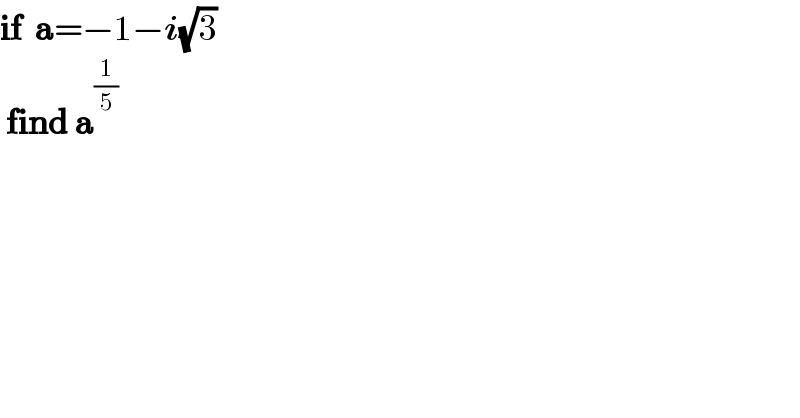Question Number 170675 by MathsFan last updated on 29/May/22

Answered by Mathspace last updated on 29/May/22

Commented by MathsFan last updated on 29/May/22

Answered by mr W last updated on 29/May/22
![a=2[cos (((4π)/3)+2kπ)+sin (((4π)/3)+2kπ)i] ⇒a^(1/5) =(2)^(1/5) [cos (((4π)/(15))+((2kπ)/5))+sin (((4π)/(15))+((2kπ)/5))i] (k=0,1,2,3,4)](https://www.tinkutara.com/question/Q170707.png)
Commented by MJS_new last updated on 29/May/22

Commented by mr W last updated on 30/May/22

